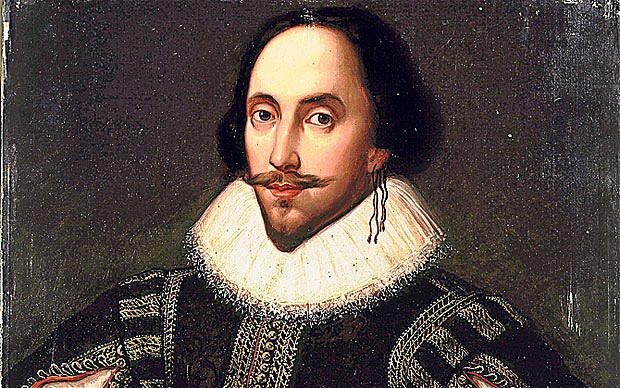
William Shakespeare (1564–1616), widely regarded as the greatest writer in the English language, was an English poet, playwright, and actor. During his lifetime, he is credited with writing 38 plays, 154 sonnets, and two long narrative poems. His works are translated in every major language and his plays are the most widely preformed of any playwright.
He grew up in Stratford-upon-Avon and is said to have began his career in London sometime between 1585 and 1592 as actor, playwright, and part-owner of a playing company called the Lord Chamberlain’s Men. Most his known work was produced between 1589 and 1613, starting primarily with comedies and histories, followed by tragedies, and ending with tragicomedies or romance. His first recorded works are Richard III and three parts of Henry VI, but his plays are hard to date. His style was considered the conventional style of the day which he altered to a more free flowing style. He poetic form was blank verse in iambic pentameter, meaning his verses didn’t rhyme and each line had ten syllables with a stress on every second syllable.
Obviously, his work had made a lasting impression on theater and literature, most importantly he expanded the dramatic potential of characterization, plot, language, and genre. For example, until Rome and Juliet, romance had not been viewed as a topic for tragedy. He was also the first to use soliloquies to explore the character’s mind. Furthermore, he helped to shape the standardization of the English language, and many modern phrases and words are credited to him. For example, “with bated breath” was first used in Merchant of Venice



